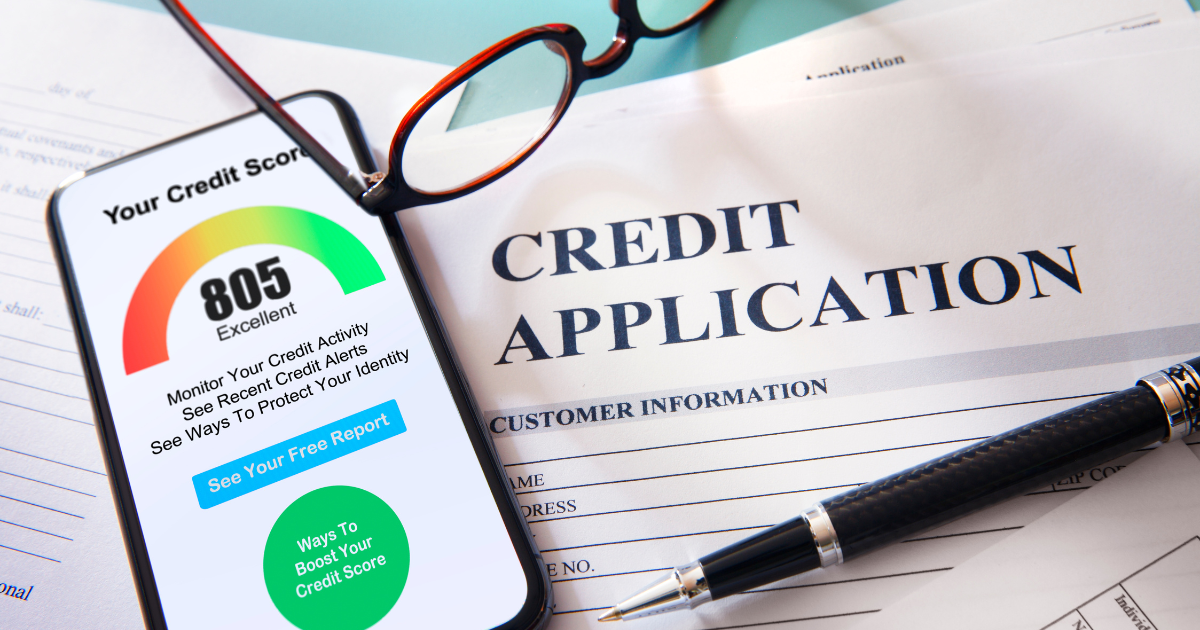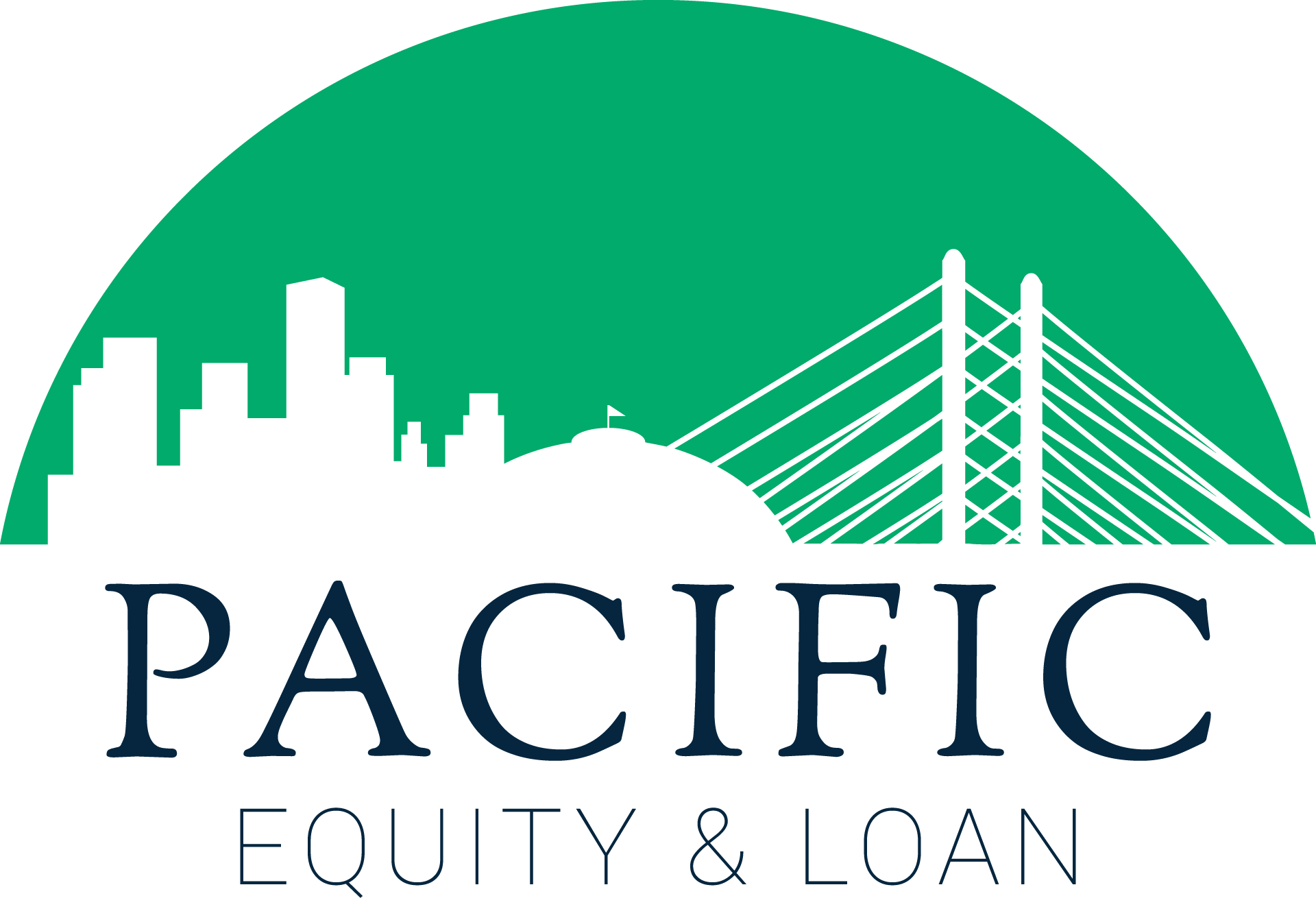If you’re like a lot of people, you’ve probably wondered what a FICO® score is. Knowing what they are and the information that goes into these credit scores can help you make better financial decisions.
In this blog, we will discuss why FICO® scores matter in getting a hard money loan and provide tips on how to improve it. We’ll cover the basics of FICO® scores, how lenders use them, and practical steps to boost your score, whether you’re a real estate investor or business owner. So, let’s dive in!
What is a FICO® Score?
FICO stands for Fair Isaac Corporation, and it’s the name of the company that created the most popular credit score in America. FICO score is a number that the credit bureau Experian assigns to you. It’s a three-digit numerical representation of your creditworthiness, which means it can make or break your ability to get a loan, open a bank account, or rent an apartment.
The term FICO score comes from the fact that the scoring model was originally developed by two engineers named Bill Fair and Earl Isaac. They later founded Fair Isaac Corporation (FICO), which is now a subsidiary of analytics company Equifax. The company continues to develop new versions of its scoring models and make them available for use by others.
FICO® Score Ranges
Your FICO score ranges from 300 to 850, and each factor that makes up this number has an impact on its total value. A higher number indicates better credit, while a lower number indicates worse credit. These scores are grouped into the following categories:
Excellent (720 to 850) – Your credit is excellent. You have a high likelihood of repaying your debts in full and on time. You are eligible for the best rates and terms for loans, lines of credit, and credit cards.
Good (660 to 719) – Your credit is good, but not great. You may need to consider alternative loan products and lenders if you want the best interest rates or terms available.
Fair (630 to 659) – Your credit is fair and you may need to shop around for better loan options if you want to finance large purchases or refinance your house.
Poor (600 or less) – Your credit score indicates that you have a high risk of not being able to pay back any money that you borrow at this point in time.
Factors That Affect Your FICO® Score
1) Payment history (35%)
Your payment history is the most important factor in determining your FICO® Score. It accounts for 35% of the total score and includes information on whether or not you’ve paid your bills on time over the past two years. This can include missed payments, late payments, and collections accounts.
2) Amounts owed (30%)
The second largest portion of your score comes from the amounts owed section. This includes how much credit you have available to you as well as how much of that credit you have used over time. In other words, how much debt you have.
In addition to this information being used in calculating your score, it also helps lenders determine what kind of product they can offer someone with a low amount of available credit or high debt-to-income ratio compared to someone with high amounts but low debt-to-income ratio. Lenders do this because it indicates whether or not they’re more likely to pay off their bills, and it provides borrowers with the option that is best fitting for their financial situation.
3) Length of Credit History (15%)
The longer you have had credit, the better it is for your score. The length of your credit history accounts for 15% of your score. If you have a lot of years on your credit reports, that means you’ve been able to handle payments responsibly and stay out of debt for a long time.
In general, the longer you’ve had credit accounts open, the better it will be for your score. This doesn’t mean that opening new accounts will hurt you—it just means that having a lot of old accounts is better than having a few new ones.
4) Credit Mix (10%)
The credit mix of your credit report makes up 10% of your FICO® Score. This includes how much you owe across all of your accounts, as well as the types of accounts you have. This includes installment loans like car loans, mortgages and student loans, revolving accounts like credit cards and retail accounts, and other types of revolving accounts like house equity lines of credit or second mortgages.
The more diverse your credit profile looks, the better your score will be. However, having too much of one type of account can actually hurt your score—and having too little credit may not give lenders enough information about how responsible you are with money overall.

What Do FICO® Scores Have To Do With Getting Hard Money Loans?
Getting a hard money loan is a great way to turn your house into an investment. But in order to secure one, you’ll need to have a good credit score—or at least a decent one. But you might be wondering why it matters so much.
The answer is simple: the hard money lender has to protect its investment.
In the world of hard money loans, your FICO® score can make or break your chances of getting approved of a loan. This is because they want to know that they can trust borrowers to repay them back the money they’re lending out.
The importance of FICO® scores in getting hard money loans is two-fold. First, a high FICO® score means that you have a good payment history and are less likely to default on the loan, which saves money for both parties involved.
Second, if you have a low FICO® score—or no score at all—then it means that you have had trouble paying back previous debts, and this could make it difficult for you to get approved of any kind of loan again. But the good news is that there are steps you can take to improve your score if it’s not where you’d like it to be. Check out these tips below for improving your FICO® score:
6 Steps You Can Take to Improve Your FICO® Score
1) Check your credit report for accuracy
The first thing you should do is check your credit report for accuracy! The first step to improving your credit score is to check your credit report for accuracy. You can request your FICO® Score report from the three major credit bureaus, TransUnion, Equifax and Experian, for free once a year at AnnualCreditReport.com.
If you find any errors or questionable accounts on your report, dispute them with the credit bureaus and ask them to add a note to your account reflecting the change. Your credit score will only go up if you act fast, don’t let a small ding cause years of damage!
2) Pay all of your bills on time every time
This is the most important thing you can do to improve your credit score. If you pay all of your bills on time every month, this will show lenders that you are responsible with money and that they can trust you with their money as well. Paying bills late or missing payments can lower your score significantly.
3) Improve your debt-credit ratio
Your debt-to-credit ratio or utilization is one of the most important factors in determining whether or not you’ll be approved for a loan or credit card. If you have too much debt compared with the amount of credit available to you, then lenders may think that you’re likely to default on payments or declare bankruptcy if something goes wrong financially.
The best way to improve this ratio is by paying down some of your debts so that there’s less money owed overall—that means fewer funds being used up each month by interest payments alone! If you have too much debt compared to what’s available, it will lower your score. So try to pay off debts and lower their balances—especially those with high-interest rates—so that they are less of a burden on your credit report.
4) Don’t open too many new accounts too quickly
Opening too many accounts in a short amount of time can lower your credit score because it looks like you’re trying to take advantage of credit cards and loans by getting more than one at once. This can also make it seem like you have a hard time managing money because there are so many accounts open at once for which you will have to make payments each month.
Give yourself some time to pay off the other cards before applying again (unless it’s an emergency).
5) Keep your oldest account open as long as possible
FICO® scores are based on a number of factors, including the length of time you’ve had credit and how much credit you have available. The longer you’ve had an account, the more likely it is that you pay your bills on time and use the card responsibly.
This doesn’t mean that you should carry a balance on an old card forever—in fact, we recommend paying off your balance in full every month. It does mean that if you want to get the best score possible, make sure to keep your oldest account active for as long as possible.
If you have an old account with a balance on it, consider paying off the balance so it will help boost your score even more.
6) Use your credit wisely
Have a mix of different kinds of credit but don’t overextend yourself with multiple loans or lines of credit at once! Having several different types of accounts can help boost your score because it indicates that you use credit in different ways. For example, having one installment loan (like a mortgage or student loan) and one revolving account (like a credit card) will help show that you’re responsible when using credit and able to pay back what you owe.
By having a mix of different kinds of credit, you are showing creditors that you are responsible with money and can manage different types of debt. Just make sure that whatever you’re using your credit card for is actually something that will benefit your finances in the long run and not just be an impulse buy.
The Bottomline
There’s no quick way to improve your FICO® score as it takes time, patience and discipline, but with these tips in mind, you can start building up your score today! And if you’re willing to put in the work, you can watch your score rise in a matter of months.
Consistency is the key to maintaining a good credit score. You don’t have to overhaul your entire financial life overnight—and you can’t go crazy and max out your credit cards. Instead, focus on making simple improvements that will add up over time.
The best part? It’s a long-term investment that will pay off over time as you get better access to loans with lower interests, great credit cards, and other financial products with favorable terms.
If you’re ready to prequalify for a hard money loan, we are ready to help! At Pacific Equity & Loan, we specialize in providing our clients with the financing they need to achieve their real estate goals. Our team of professionals will work with you every step of the way and get you the funding you need fast.

Citations
Lubin, Posted by Deanna. “Approaches You Can Take to Improve Your FICO® Score.” Kiavi, https://www.kiavi.com/blog/five-tips-for-improving-your-fico-score.
“How to Improve Your FICO Score.” MyFICO, 19 Oct. 2018, https://www.myfico.com/credit-education/improve-your-credit-score.
White, Alexandria. “6 Easy Tips to Help Raise Your Credit Score.” CNBC, 28 Dec. 2022, https://www.cnbc.com/select/easy-tips-to-help-raise-your-credit-score/.






